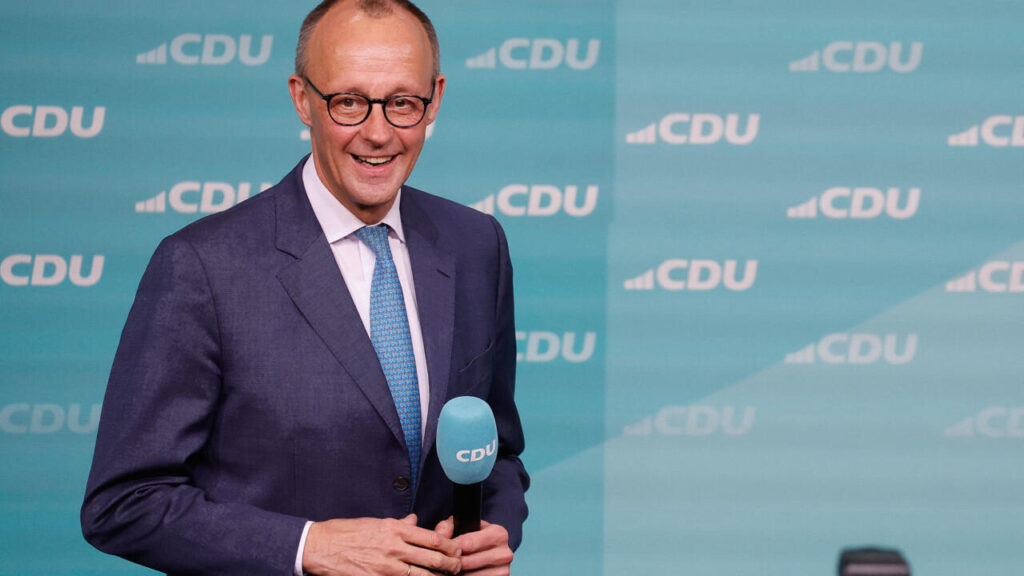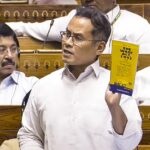By Satyaki Chakraborty
The German conservatives under the leadership of Friedrich Merz finally clinched a deal with the ruling Social Democrats (SPD) for forming a coalition which will run Europe’s largest economy for the next four years amidst new global scenario following Donald Trump taking over as the U.S. President for the second time. The deal concluded on Wednesday was preceded by weeks of bargaining by the two traditional parties of governance in Germany. The agreement was signed after both sides agreed for a flexible approach diluting some of the demands made earlier.
The national elections were held on February 23 this year giving the conservative CDU/CSU 208 seats in the 630 member Parliament as the leading party but much below the majority mark of 316. The SPD got 121 seats, while the Greens got 85 seats. Already Herz concluded a deal with the Greens on March 14, now with the latest deal with the SPD, the three party coalition will have total voting strength of 414 out of 630- a highly comfortable position for a coalition government in such trying times. The two other parties include the far right AFD with 151 seats and the Leftwing De Linke with 64 seats.
The 69-year-old said the coalition pact provided a “strong and clear signal” both to its own citizens and other European countries, adding, “Germany is getting a government that is capable of action and strong.”
The deal stressed the importance of Germany’s relations with the United States, its largest trading partner, and aims for a free trade deal in the medium term. But Merz also emphasised that the European Union needed a common response to the escalating global tariff war that has put the US and China, in particular, at loggerheads.
“At the same time, economic uncertainty is increasing enormously. This week in particular, decisions by the American government have triggered new turmoil,” Merz said. Outlining a number of policies, the coalition agreed to cut taxes for middle and lower incomes, to reduce corporate tax, lower energy prices, support the electric car industry and scrap a disputed supply chain law.
It also plans a commission on further reforming Germany’s constitutionally enshrined spending limits known as the “debt brake”, long seen by critics as hobbling economic growth. With the AfD breathing down its neck, the coalition signalled a tougher stance on migration, planning to turn away asylum seekers at Germany’s borders and scrap fast-tracked naturalisation, among other measures.
The coalition also announced a voluntary military service and the creation of a national security council, as well as moves to speed up defence procurement and backing Ukraine’s bid to join the NATO alliance. Merz, who had previously called Trump’s US an unreliable ally, has already pledged to build up defence spending as Europe faces a hostile Russia, and to support businesses struggling with high costs and weak demand.
This welcome development for the German politics has been possible due to Europe’s running battle with the U.S. president Donald Trump in which Germany faced big attacks from the U.S. Chancellor designate Merz was also personally attacked by the MAGA leaders in USA. Now Merz seems to have decided to opt for a make Germany strong policy by proposing to present a enhanced budget which will help the economy to be stronger and meet the challenges of the present ailments faced by the industries. Merz said after the agreement with Greens “Germany is making its large contribution to the defence of freedom and peace in Europe. Germany is back”
In Europe, the major countries are having coalition governments. The budgetary policies emerge as big issues between the parties inside the coalition. This is true for other countries like France, Portugal, Spain where the coalitions are ruling and there are both Right and Left combinations with opposing approaches to the budget issues. That way, the agreement of the new German coalition on the coming budget with the support of nearly two-third is a personal victory of the Chancellor designate Merz and his political skill in negotiations.
Greens were earlier opposed to the contents of the new budget proposals but after prolonged negotiations, their leaders finally agreed when Merz explained how this package was the answer of Germany to the Trump’s rantings against the U.S.’s European allies. He explained to the Greens that the hike in defence spending was needed to be independent of the U.S. at the present stage of Trump’s unilateral actions globally.
As regards the far right AFD, the party is happy that every failure of the coalition govt will be capitalized by the party. The AFD is targeting the right wing elements within CDU and the CSU as also some disgruntled elements of SPD. The latest opinion poll has put the AFD at the top with 26 per cent followed by CDU/CSU at 24 per cent. However, the AFD leadership knows like this time, the two main national combinations will join hands in future to keep out of power. That is why it is important for AFD to gain many more seats in Bundestag in future elections.
At the other end, the Left wing De Linke is rejuvenated after its unexpected win of 64 seats, more than 10 per cent in new Bundestag as against its tally of 38 in the earlier elections. For De Linke, the advantage is that that it can act as a real opposition from the Left side focusing on all the slippages in relation to the measures for the workers and other sections of the common people. The Social Democrats are now part of coalition, so the Left may target the section of SPD base who will be disenchanted with the working of the new coalition.
The other wing of Left BSW has no seat in new Parliament though in the outgoing Bundestag, the BSW had 10 members who left De Linke. BSW has got highly popular leaders. Both De Linke and BSW will be working to improve their respective support base as the new coalition starts functioning. A mood of optimism is back in Germany. There is no threat of right take over as was feared late last year. The country’s politics has gone back to normal. Both the AFD and the Left will be acting as opposition from their respective end. The country will be ruled by the coalition of two parties which are known as normal parties of governance. (IPA Service)

 Waqf Amendment Act Is An Assault On Constitution And Rights Of Minorities
Waqf Amendment Act Is An Assault On Constitution And Rights Of Minorities 